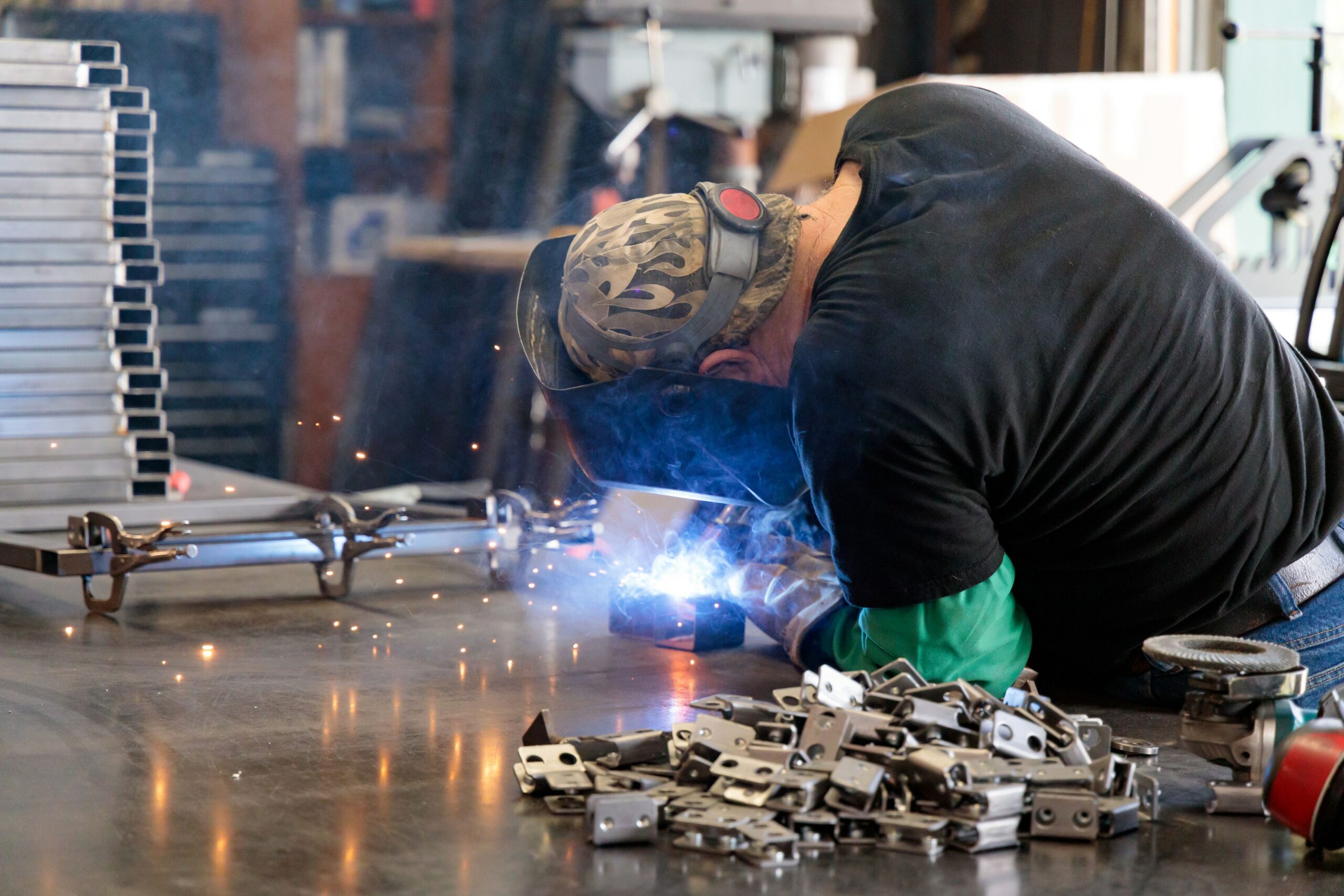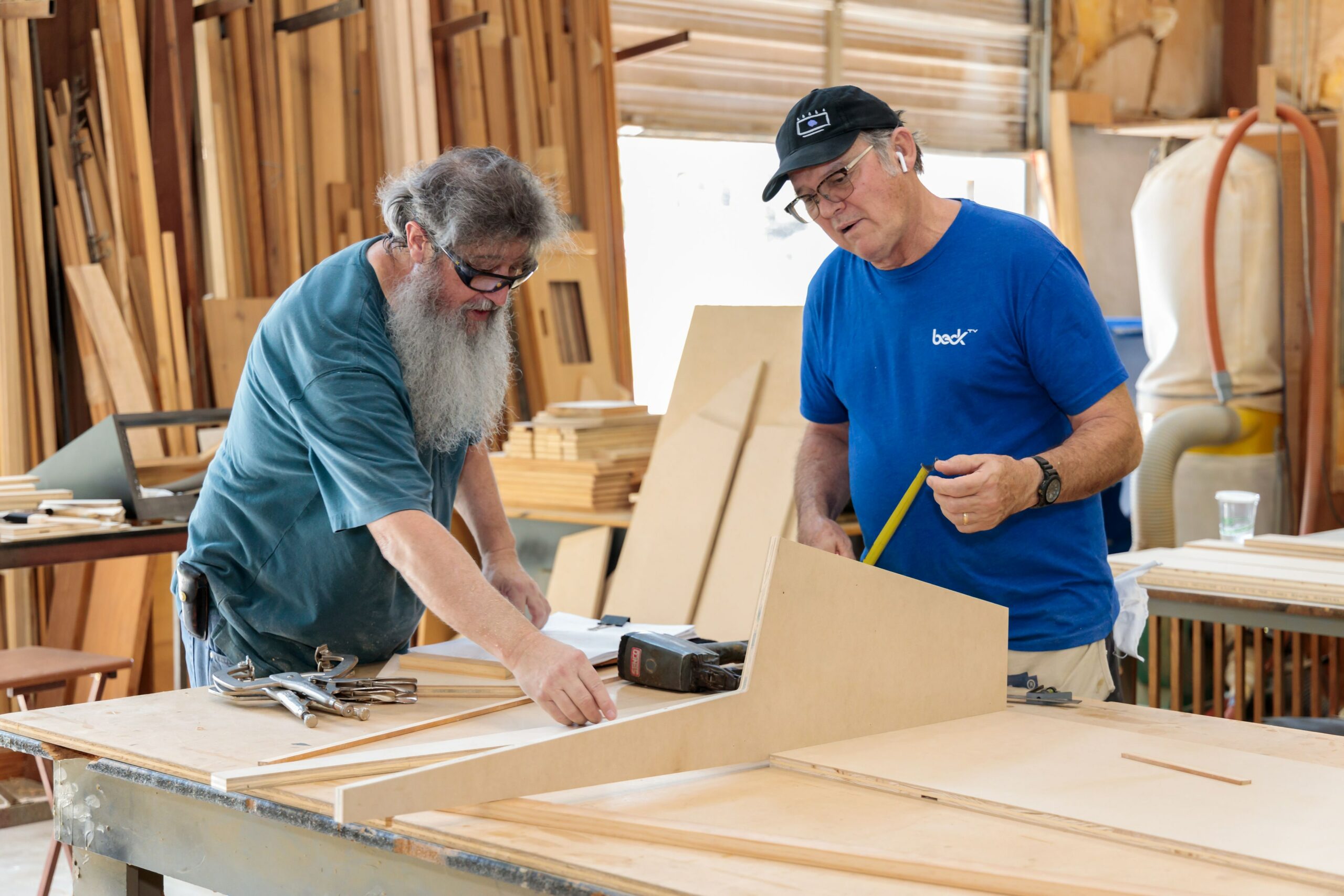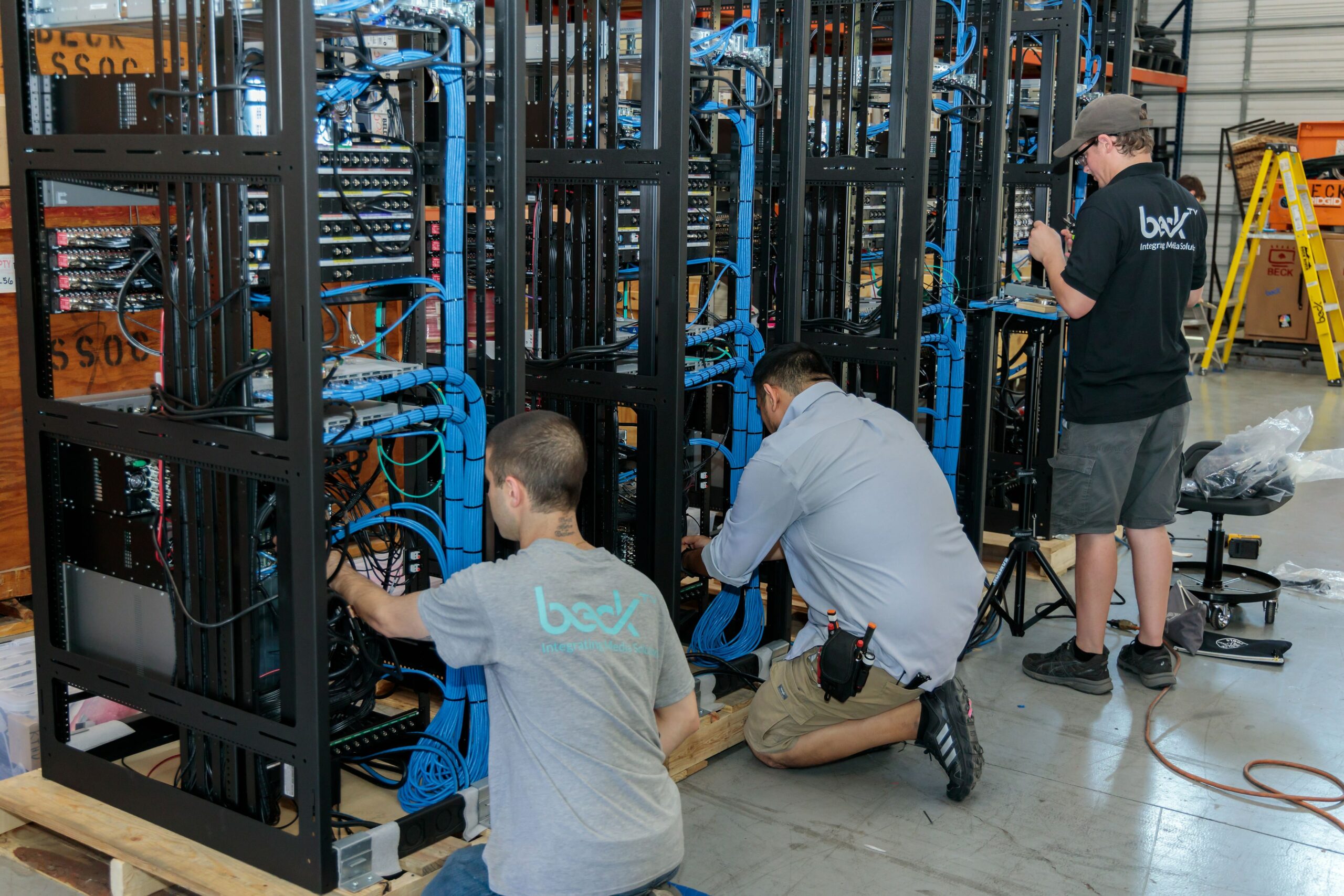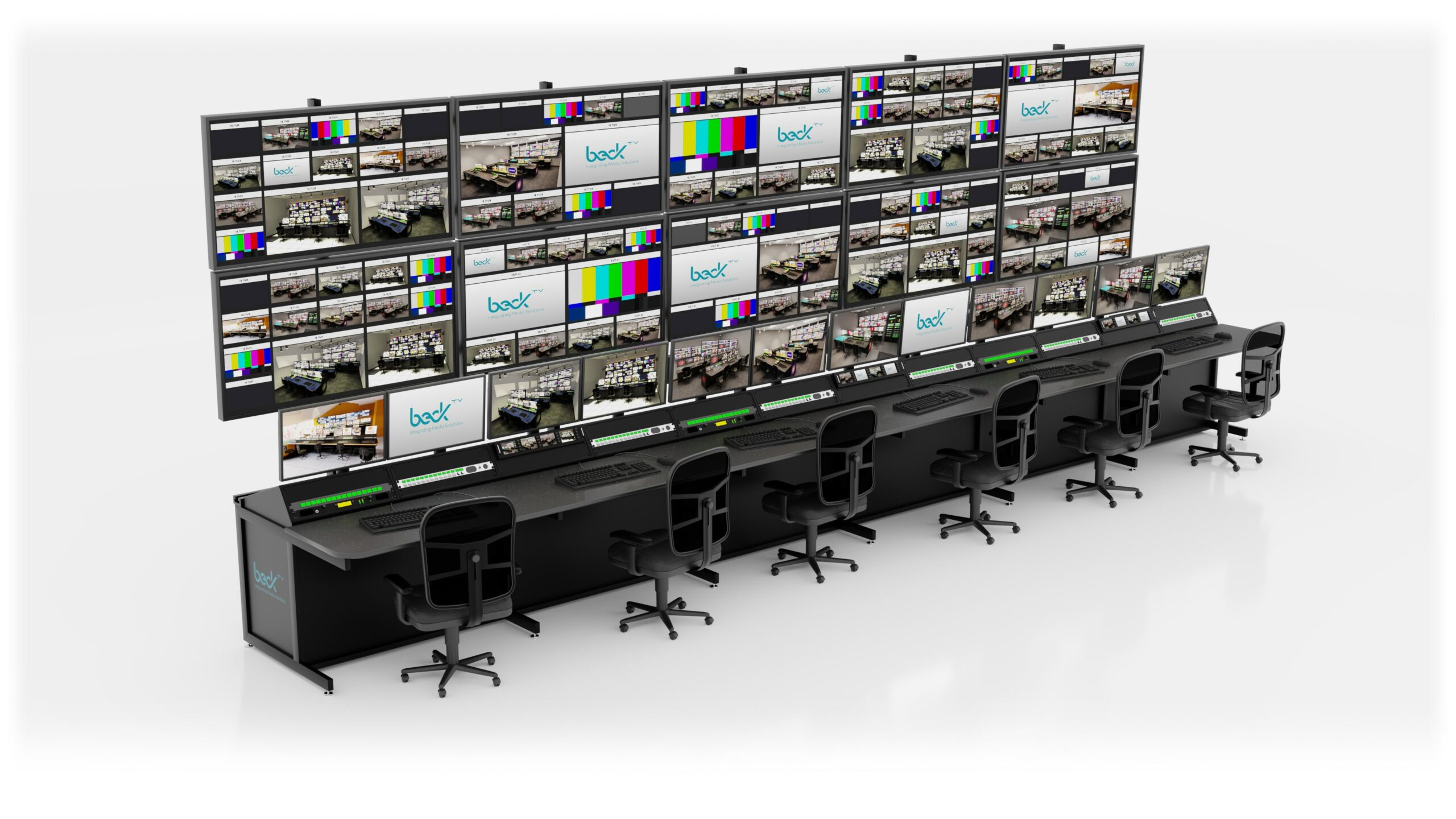Top reasons an integrator should build your broadcast facility furniture

Subscribe to NCS for the latest news, project case studies and product announcements in broadcast technology, creative design and engineering delivered to your inbox.
A big part of any new broadcast or sports production facility is the furniture.
You need a place to land new equipment for technical positions — video switcher tubs, audio mixers, KVM endpoints, displays, and more — that operators use to monitor, communicate, listen, and otherwise do their jobs. Technical furniture can be custom-designed to accommodate all that broadcast equipment so that it has a functional layout, looks nice, is strong enough to last for years, and is integrated in a way that the wiring is clean and manageable.
If you are building a room that has technical furniture, then you have two options: You can go to a cabinet manufacturer or furniture builder for your technical consoles, or you can choose a systems integrator that does in-house fabrication of consoles, monitor walls, rolling carts, and other technical furniture.

There are several advantages to working with a systems integrator that also builds the furniture.
Equipment and workflow expertise
First and foremost, the integrator is more familiar with the equipment that’s going into the consoles than a millwork fabricator is. Integrators understand the operations that are being performed, the relationships between the people, and the relationships between the people and the equipment. Monitor placements, the ergonomics, the distance from a hand to control, layouts — integrators are very finely tuned to exactly those things. For some integrators, they’re also designing the rooms themselves, so the equipment integration and the furniture design go hand in hand. This intimate knowledge is invaluable.
Wiring and cable management expertise
On a related note, integrators understand the nuts and bolts of actually wiring up equipment within a technical console, unlike a cabinet manufacturer that builds the furniture and leaves. Integrators are the ones that install the cable, and they tend to have very strong opinions about proper cable management. That’s because they have experience using the furniture. Because of that experience, you tend to get a better product that is designed more specifically for your needs.

Planning and efficiency
An integrator that also builds consoles can plan the room and the furniture simultaneously, yielding far greater efficiency than working with separate vendors. Such an integrator can help cut back on the decisions and iterations of design that happen on the way to creating a cohesive console design — and get it fabricated quicker than if you had to go back and forth with a tech furniture company. An integrator/fabricator simplifies the whole process by keeping it in-house and coordinating it with the other spokes that make up the wheel of a project. This efficiency, in turn, can shorten the time between start and delivery because these integrators know exactly what’s needed and when.
Flexibility
On top of that, you have increased flexibility because an integrator/fabricator can customize your build, swap parts, or make other changes much quicker and easier than if you have to source it outside.

When it comes to the furniture in your new production facility or broadcast truck, expertise matters. Working with an integrator to build your technical furniture means you get the full spectrum of services required for a well-executed production facility: An expert that designs the furniture, builds the furniture, installs the furniture, installs the cabling and the equipment, and then knows how to use it. And that translates to a more functional, efficient workflow.
Subscribe to NCS for the latest news, project case studies and product announcements in broadcast technology, creative design and engineering delivered to your inbox.




tags
av integration, BeckTV, Brendan Cline, Broadcast Facility, Broadcast Facility Planning, Broadcast Facility Upgrade, Broadcast Workflow, control room, Fabrication, facilities planning, facility, integration, ip workflow, studio planning, workflow
categories
AV Integration & Broadcast Systems Integration, Broadcast Engineering, Broadcast Equipment, Broadcast Facility, Broadcast Facility Technology, Featured, Thought Leadership, Voices